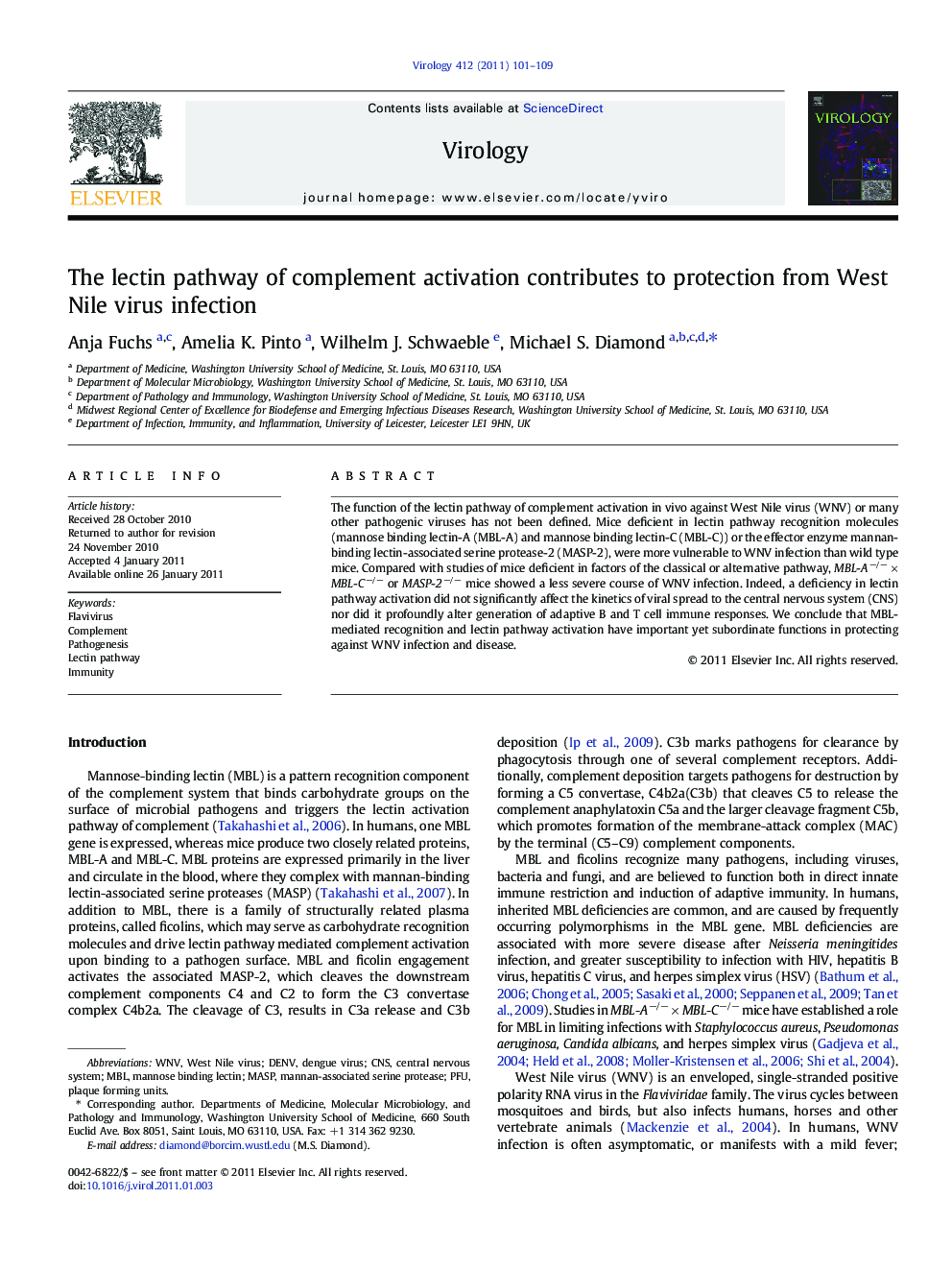| Article ID | Journal | Published Year | Pages | File Type |
|---|---|---|---|---|
| 6141479 | Virology | 2011 | 9 Pages |
Abstract
The function of the lectin pathway of complement activation in vivo against West Nile virus (WNV) or many other pathogenic viruses has not been defined. Mice deficient in lectin pathway recognition molecules (mannose binding lectin-A (MBL-A) and mannose binding lectin-C (MBL-C)) or the effector enzyme mannan-binding lectin-associated serine protease-2 (MASP-2), were more vulnerable to WNV infection than wild type mice. Compared with studies of mice deficient in factors of the classical or alternative pathway, MBL-Aâ/â Ã MBL-Câ/â or MASP-2â/â mice showed a less severe course of WNV infection. Indeed, a deficiency in lectin pathway activation did not significantly affect the kinetics of viral spread to the central nervous system (CNS) nor did it profoundly alter generation of adaptive B and T cell immune responses. We conclude that MBL-mediated recognition and lectin pathway activation have important yet subordinate functions in protecting against WNV infection and disease.
Keywords
Related Topics
Life Sciences
Immunology and Microbiology
Virology
Authors
Anja Fuchs, Amelia K. Pinto, Wilhelm J. Schwaeble, Michael S. Diamond,
